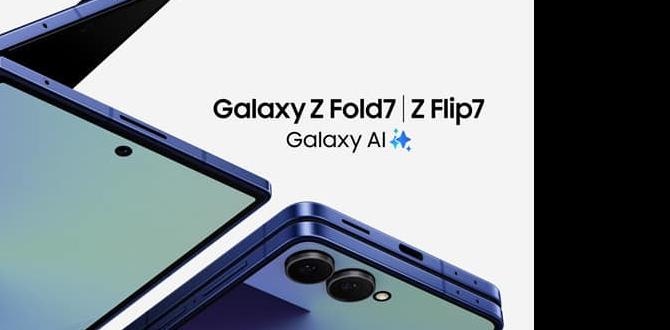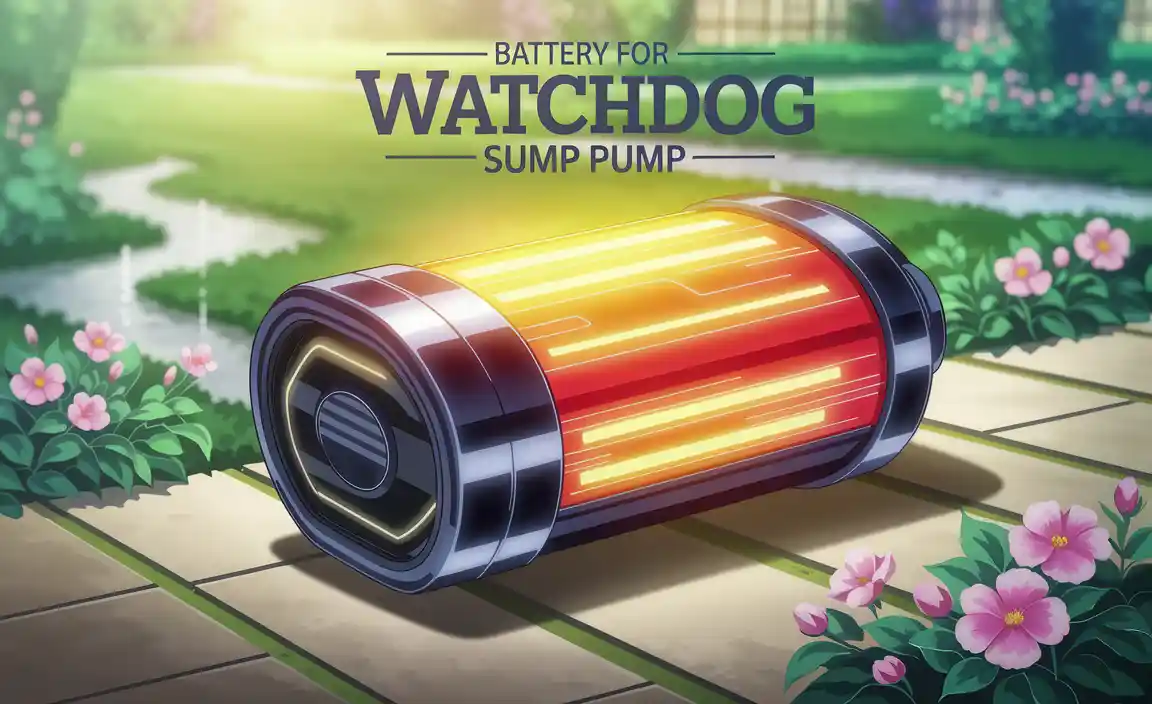Can you find a cheap hybrid car battery for off-road use? Yes, finding an affordable hybrid battery for off-road adventures is possible by sourcing used, refurbished, or specialized aftermarket options. Focus on reputable suppliers and understand warranty limitations to ensure reliability without breaking the bank.
Your Guide to Affordable Hybrid Car Batteries for Off-Road Adventures
Taking your hybrid car off the beaten path is an exciting idea, but a dying hybrid battery can quickly turn that adventure into a costly headache. Wondering if you can find a budget-friendly replacement that can handle the extra strain? You’re not alone! Many drivers want to keep their adventures going without spending a fortune on a new hybrid battery. This guide will walk you through the options for finding a cheaper hybrid car battery that’s suitable for off-road use, explain what to look for, and help you make smart choices to keep your hybrid rolling, even when the pavement ends.
We’ll cover everything from understanding the risks of off-road hybrid battery use to finding reliable, wallet-friendly options. Get ready to power up your next adventure without draining your savings!
Understanding Hybrid Car Batteries and Off-Roading
Hybrid car batteries are complex systems designed for specific on-road conditions. They combine a gasoline engine with an electric motor, and the battery is key to this synergy. When you go off-road, you introduce new challenges.
The Demands of Off-Road Driving on a Hybrid Battery
- Vibration and Shock: Rough terrain means more bumps and jarring. This can put stress on the battery’s internal components, which are typically sensitive.
- Temperature Extremes: Off-road adventures can take you to very hot deserts or cold mountains. Hybrid batteries have optimal operating temperatures, and extremes can reduce their efficiency and lifespan.
- Increased Load: Driving at low speeds, climbing hills, or navigating obstacles often requires more power from the electric motor, which draws heavily from the hybrid battery.
- Dust and Debris: Off-road environments can be dusty. While most hybrid battery packs are sealed, accumulation of fine particles around vents or cooling systems can be an issue.
The hybrid battery is designed for the stop-and-go of city driving and the steady cruising of highways. It’s not engineered for the constant, uneven demands of rugged trails. This is why using a standard hybrid battery for dedicated off-road use might shorten its life or lead to premature failure.
Why “Cheap” Needs Careful Consideration
When we talk about a “cheap hybrid car battery for off-road,” it’s important to manage expectations. A truly cheap option might be used, refurbished, or a less common aftermarket brand. These can offer significant cost savings, but they also come with increased risks:
- Shorter Lifespan: A cheaper battery might not last as long as a new, premium one, especially under harsh conditions.
- Lower Performance: You might notice a decrease in electric range or acceleration if the battery isn’t in peak condition.
- Limited or No Warranty: Many budget options, especially used ones, come with minimal or no warranty, leaving you exposed to repair costs.
- Compatibility Issues: A non-OEM (Original Equipment Manufacturer) part might not integrate perfectly with your car’s computer system, leading to performance glitches.
The goal is to find a battery that is affordably priced, reliable enough for your intended use, and ideally, comes with some form of assurance. We’re aiming for smart savings, not just the lowest price tag.
Where to Find Affordable Hybrid Car Batteries
Finding a budget-friendly replacement hybrid battery involves exploring a few different avenues. Each has its pros and cons, so let’s break them down.
1. Used Hybrid Batteries
What they are: These are batteries taken from vehicles that have been salvaged or retired. They have prior usage and their remaining lifespan is unknown.
Pros:
- Significantly cheaper than new batteries.
- Can be a good solution for older vehicles where a new battery might cost more than the car is worth.
- Can sometimes be found locally, allowing for inspection.
Cons:
- Lifespan is unpredictable.
- Usually come with very short or no warranties.
- May have been stored improperly, affecting their condition.
- Risk of hidden damage or wear.
Where to look:
- Salvage Yards (Junkyards): Search for local yards specializing in hybrids.
- Online Marketplaces: Websites like eBay, Craigslist, or specialized auto parts forums might list used batteries.
- Hybrid Specialists: Some repair shops that focus on hybrids might have a stock of used batteries.
2. Refurbished or Reconditioned Hybrid Batteries
What they are: These batteries have been taken apart, tested, and had faulty modules or cells replaced. They are then reassembled and tested again.
Pros:
- More affordable than brand-new batteries.
- Often come with a limited warranty, providing some peace of mind.
- Can offer a good balance of cost and reliability.
- Specific modules are repaired, so the overall pack can be in better condition than a randomly pulled used battery.
Cons:
- Warranty terms can vary greatly, so read them carefully.
- Quality depends heavily on the reconditioning company’s expertise and standards.
- Still not as reliable as a brand-new battery in the long term.
Where to look:
- Specialized Battery Reconditioners: Search for companies that specifically rebuild hybrid battery packs.
- Online Retailers: Many online auto parts stores sell refurbished hybrid batteries.
- Hybrid Repair Shops: Some reputable shops offer reconditioned batteries as an option.
Tip: Look for companies that publicly share their reconditioning process and offer clear warranty information. reputable sites often detail their testing procedures.
3. Aftermarket Hybrid Batteries
What they are: These are batteries manufactured by third-party companies, not the original car manufacturer. They aim to be compatible with specific hybrid models.
Pros:
- Can be cheaper than OEM batteries.
- Often come with better warranties than used or basic refurbished options.
- May offer improved performance or longevity over stock batteries in some cases.
Cons:
- Quality can vary significantly between brands.
- Some may have compatibility issues or not perform as expected.
- Cheapest aftermarket options might be of lower quality.
Where to look:
- Online Auto Parts Stores: Major online retailers often carry aftermarket hybrid batteries.
- Specialty Hybrid Parts Websites: Dedicated sites can offer a wider selection.
- Independent Mechanics: Ask your trusted mechanic for recommendations on aftermarket brands they’ve had success with.
4. Renting or Leasing Hybrid Batteries
What it is: Some companies allow you to rent or lease a hybrid battery instead of buying one outright. You pay a monthly fee, and the battery is the responsibility of the leasing company.
Pros:
- Low upfront cost, spreading the expense over time.
- Often includes maintenance and replacement if the battery fails.
- Good for those who can’t afford a large lump sum for a battery.
Cons:
- Can be more expensive in the long run than buying outright.
- You don’t own the asset.
- Availability might be limited depending on your location and vehicle model.
Where to look:
- Specialized Hybrid Battery Leasing Companies: Perform an online search for “hybrid battery lease” or “hybrid battery rental.”
- Some Hybrid Repair Chains: Certain large repair networks might partner with leasing companies.
Important Note on Off-Road Use: If you plan on using your hybrid for off-roading, be sure to check the terms of service for any used, refurbished, or leased battery. Some warranties or agreements may exclude damage or failure due to extreme use or off-road driving.
What to Look for in an Affordable Hybrid Battery: Key Features and Considerations
When you’re on a budget, it’s tempting to grab the first cheap option you see. However, a little knowledge goes a long way in ensuring you get a battery that won’t leave you stranded. Here’s what to prioritize:
1. Warranty: Your Safety Net
This is perhaps the most crucial factor, especially with budget options. A warranty protects you against manufacturing defects and premature failure. For affordable batteries, look for:
- Duration: Even a 12-month or 24-month limited warranty is better than none.
- Coverage: Understand what the warranty covers (e.g., parts, labor, specific failure types).
- Transferability: Is the warranty transferable if you sell the car later? (Less critical for off-road specific use, but a good sign of a reputable seller).
- Exclusions: Check if off-road use is explicitly excluded! This is vital for your topic.
2. Seller Reputation and Reviews
Don’t buy from just anyone. Research the seller or reconditioner thoroughly:
- Online Reviews: Look for reviews on independent sites, Google, and forums.
- Company Website: A professional website with clear contact information and detailed product descriptions is a good sign.
- Years in Business: Companies that have been around for a while often have a track record of reliability.
- Customer Service: Can you easily get in touch with them to ask questions?
3. Battery Condition and Testing (for Used/Refurbished)
If you’re buying used or refurbished, ask about:
- Diagnostic Reports: Has the battery pack been tested with diagnostic tools? What were the results (e.g., state of health, cell balance)?
- Age of Battery: While hard to pinpoint for used, some sellers might know the approximate year of manufacture.
- Inspection: Can you physically inspect the battery before purchasing (if local)? Look for corrosion, physical damage, or leaks.
4. Compatibility and Specifications
Ensure the battery is compatible with your specific hybrid model and year. Check:
- Make, Model, Year
- Engine Size
- VIN Check (if available from seller)
- Voltage and Capacity (Ah)
Using a battery with incorrect specifications can damage your vehicle or pose safety risks.
5. Installation Expertise
Hybrid battery replacement is not a simple DIY job for most people. It involves high-voltage systems and requires specific tools and knowledge. Consider:
- Professional Installation: Factor in the cost of professional installation. Many warranties require it.
- Shop Reputation: If you’re using a local shop, ensure they are experienced with hybrid vehicles. You can find lists of certified hybrid mechanics through organizations like the National Institute for Automotive Service Excellence (ASE), which provides credentials for automotive technicians.
6. Suitability for Off-Road (with Reservations)
Be realistic. No “cheap” hybrid battery is designed for extreme off-road abuse like a dedicated off-road battery. However:
- Robust Construction: Some aftermarket or reconditioned batteries might use more durable casings or internal components. Inquire about this.
- Understand Limitations: Accept that a budget battery subjected to off-road conditions may have a shorter lifespan. Plan for potential early replacement or maintenance.
- Driving Style: Drive as smoothly as possible, even off-road, to minimize shocks and vibrations on the battery.
DIY vs. Professional Installation: A Crucial Decision
Replacing a hybrid battery involves working with a high-voltage system, which can be dangerous and even lethal if not handled correctly. It’s not like changing a regular 12V car battery.
Why Professional Installation is Highly Recommended
- Safety: Hybrid systems operate at hundreds of volts. Improper handling can lead to severe electric shock, burns, or even death. Professionals are trained in high-voltage safety protocols.
- Specialized Tools: Hybrid battery replacement requires specific tools for disconnecting and reconnecting high-voltage cables, diagnostic equipment, and often specialized lifts.
- Warranty Requirements: Most reputable battery suppliers require professional installation for their warranty to be valid.
- Proper Disposal: Used hybrid batteries are hazardous waste and must be disposed of or recycled properly. Professionals handle this as part of the service.
- Diagnostics: A qualified technician can accurately diagnose battery issues and ensure the new battery is properly integrated with the vehicle’s computer system, which is critical for performance and preventing error codes.
According to the U.S. Department of Energy, hybrid vehicle battery packs are designed for the specific stresses of on-road driving. While repairs might be possible, they require expertise to ensure safety and functionality.
When DIY Might Be Considered (with Extreme Caution)
If you are an experienced mechanic with a proven track record working on hybrid vehicles and have access to the correct safety equipment and tools, you might consider it. However, this is exceptionally rare and usually not recommended for a beginner or even an intermediate DIYer.
Cost of Professional Installation
The cost can vary widely based on your location, the complexity of the vehicle, and the shop’s labor rates. Expect anywhere from $300 to $1000+ for installation alone.
Factors affecting installation cost:
- Vehicle Model: Some hybrid batteries are easier to access than others.
- Shop Rates: Dealerships are typically more expensive than independent hybrid specialists.
- Additional Services: The technician might also perform other diagnostics or checks on your vehicle’s hybrid system.
Making the Choice for Your Off-Road Hybrid
For an off-road focused hybrid, you’re already pushing the limits of the battery’s design. Therefore, investing in professional installation for any replacement battery—even a budget one—is highly advisable. It mitigates risks and ensures the battery is installed correctly to give you the best possible chance of reliability, even on rough terrain. If the battery fails prematurely due to installation error, you risk voiding the warranty on even a cheap replacement.
Comparing Different Battery Options for Off-Road Use
Let’s create a quick comparison table to help you visualize the trade-offs when looking for an affordable hybrid car battery for off-road use. Remember, “off-road use” is a general term; truly extreme off-roading will put any hybrid battery to the test, regardless of price.
| Feature | New OEM Battery | New Aftermarket Battery (Budget) | Refurbished Battery | Used Battery |
|---|---|---|---|---|
| Initial Cost | Very High | Medium to High | Medium | Low |
| Expected Lifespan (General) | Longest | Good | Moderate | Shortest & Most Variable |
| Warranty | Longest, Comprehensive | Moderate to Good (Varies by Brand) | Limited (e.g., 6-24 months) | Minimal to None |
| Reliability (General) | Highest | Good to Very Good | Good (depending on rebuilder) | Lowest & Most Variable |
| Off-Road Performance Risk (*) | Low (still not designed for it) | Moderate | Moderate to High | High |
| Ease of Finding “Cheap” for Off-Road | Rarely | Possible | Likely | Most Likely |
| Installation Importance | High | High | High | High |
| Ideal For: | Drivers prioritizing maximum longevity & performance. | Drivers seeking value and
|




